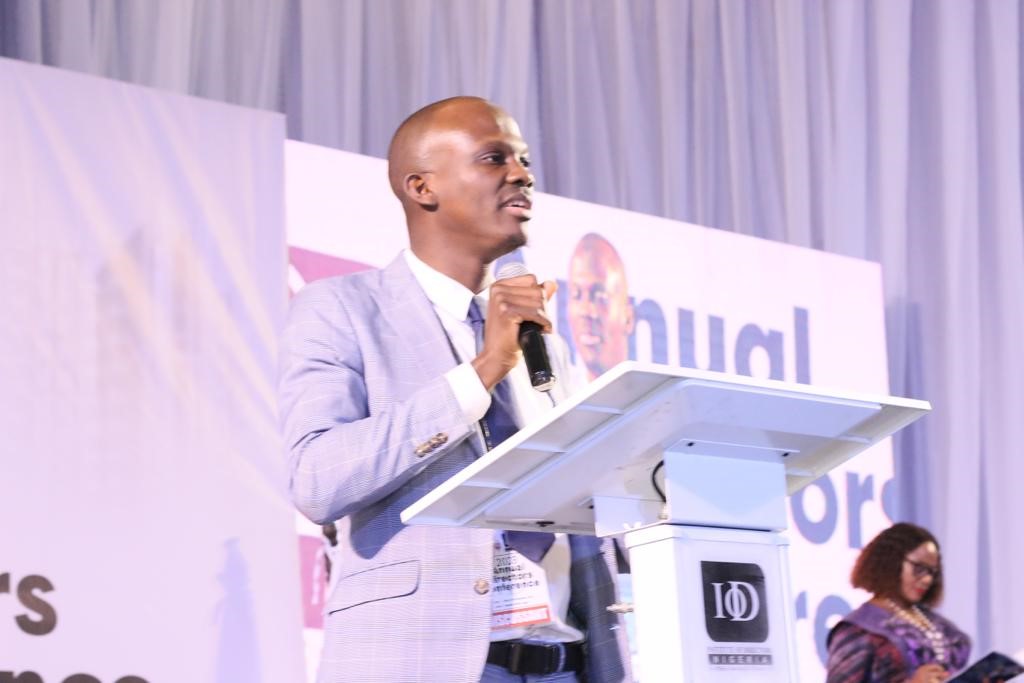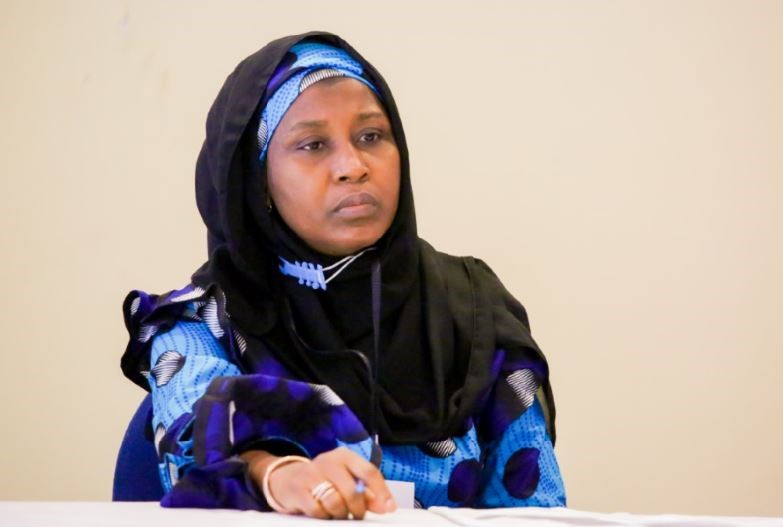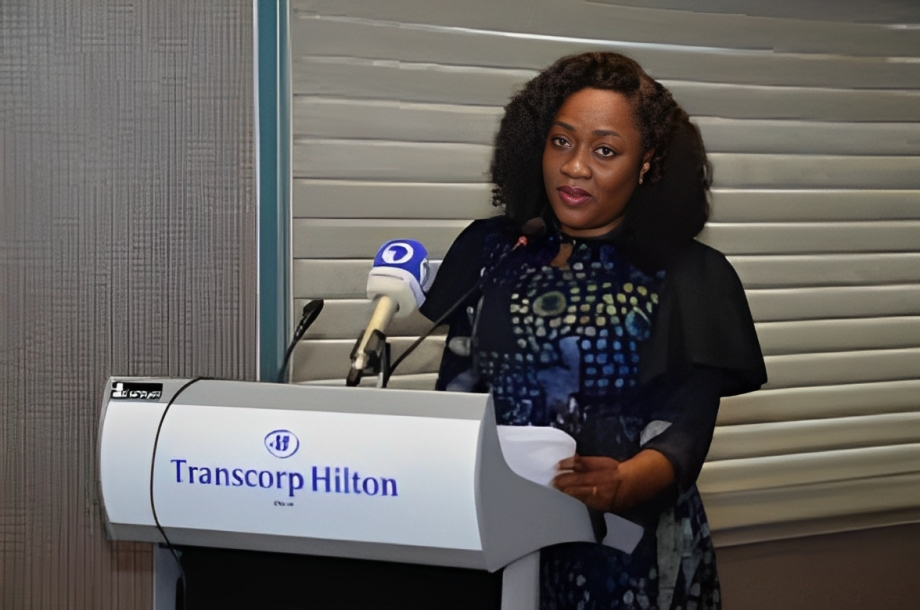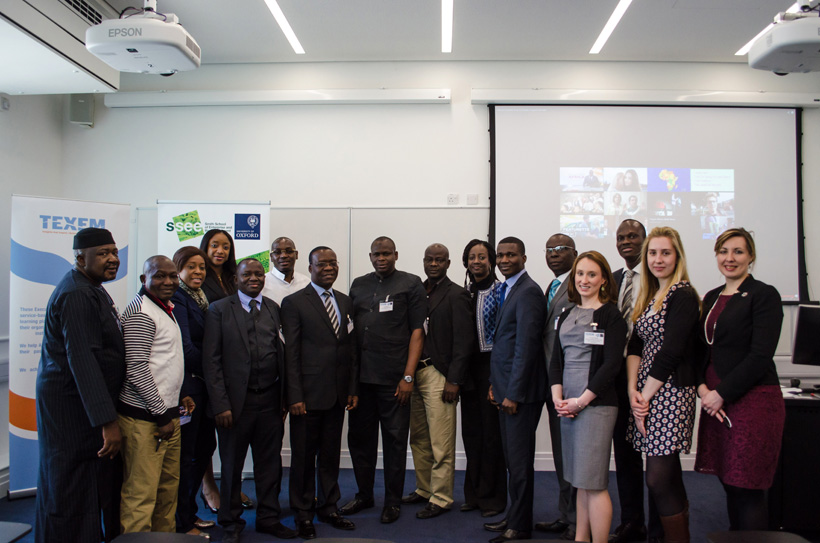
Esteemed patriots and citizens of the world,
I write with a tremendous sense of responsibility considering the scale of existential challenges that leaders glocally (globally and locally) face in these disruptive times characterised by slow growth, failing business models, cyber threats and high inflation. Leveraging insights gleaned from diverse contexts and thousands of interactions with decision-makers globally as the founder of TEXEM, UK, I present some actionable solutions for success in 2024.
In the crucible of economic challenges, Nigerian CEOs stand at the helm, poised for transformative leadership. Embrace resilience, chart strategic courses, and foster innovation to navigate the complex landscape. In 2024, let governance be your compass, steering toward ethical excellence. Forge strategic alliances, empower teams, and lead with unwavering vision to endure and thrive in adversity. This is your call to pioneer change, where leadership, strategy, innovation, and governance converge for a prosperous year ahead.
Navigating challenging economic times demands resilient leadership. Here’s a strategic blueprint for success in 2024:
Embrace Innovation: “Innovation is the specific instrument of entrepreneurship.” – Joseph Schumpeter. Opportunity Identification, Problem-Solving Capability, Market Relevance and Strategic Evolution are many benefits of innovation in these uncertain times. Nigerian leaders could learn from developing countries like India, where technology leaders have transformed the landscape despite challenges.
Agile Leadership: “Leadership is the capacity to translate vision into reality.” Warren Bennis. In these times of high inflation and heightened currency risks, leaders in Nigeria can learn from the agility and resilience of leaders in Brazil, who adapt swiftly to economic shifts.
Strategic Vision: “Good business leaders create a vision, articulate the vision, passionately own the vision, and relentlessly drive it to completion.” – Gary Hamel. In these times of turbulence, leadership is tested, and true leaders thrive. In challenging times, CEOs with a clear vision successfully navigate challenges and win.
Governance Excellence:
“Good governance never depends upon laws, but upon the personal qualities of those who govern. The machinery of government is always subordinate to the will of those who administer that machinery.” – Frank Herbert.
In these volatile times, strategic leaders need to optimise their decision-making credentials and oversight acumen. Leaders should examine and learn from the governance models in Singapore, emphasising and inspiring core competence that stimulates better accountability, effective resource allocation and efficient execution.
Diversification & Uncontested Market Strategy.
The Uncontested Market Strategy and diversification share common elements but are distinct concepts. In these complex times, leaders need to diversify. Diversification involves expanding an organisation’s business operations into new markets, products, or services, e.g., Exploring new markets that the Africa Free Trade Continental Agreement offers. On the other hand, the Blue Ocean Strategy is a specific approach to business strategy that focuses on creating uncontested market space. For example, Nintendo’s Wii gaming console introduced motion-sensing technology, making gaming accessible to a broader audience. The console’s user-friendly design and interactive gameplay appealed to non-traditional gamers, creating a new market segment. Nintendo strategically shifted focus from competing in the traditional gaming console market, tapping into a blue ocean of casual gamers. Also, Singapore has successfully implemented a Blue Ocean-like strategy by transforming itself into a global hub for finance, trade, and technology. The government focused on creating an attractive business environment, investing in education, and fostering innovation. This strategy positioned Singapore as a unique and thriving economic centre in Southeast Asia, attracting multinational corporations and promoting economic growth. Furthermore, government leaders can learn from Mexico’s diversified economy to mitigate risks and navigate uncertain economic climates.
Stakeholder Collaboration: “Coming together is a beginning, staying together is progress, and working together is a success.” – Henry Ford.
The capability to build strong relationships with diverse stakeholders is a resource that is unique and difficult to imitate. Nigerian leaders can observe how leaders such as Jeff Bezos (Amazon) thrived. Bezos transformed Amazon into a global e-commerce giant through collaboration with sellers, partners, and investors. Amazon’s success is deeply rooted in its ability to create a vast ecosystem of stakeholders.
Talent Development: “In the end, strategy is about the organisation’s survival.” – Henry Mintzberg. A learning organisation or country will always turn challenges into vitamins. They would avoid complacency, denial and confusion and always aspire to renewal. To build a learning culture, leaders can glean valuable insights from how Malaysia focuses on talent development to ensure organisational resilience. Nigeria could develop its citizens’ competence in programming, entrepreneurship, customer service, arts, fashion, and entertainment and export this to the rest of the world.
Digital Transformation: Data analytics provides valuable insights for leaders’ informed decision-making. In these turbulent times, organisations can leverage data to understand customer behaviour, market trends, and internal operations, leading to better strategic choices. At the national level, a digitally transformed economy stimulates economic growth by fostering innovation and attracting investments, which Nigeria urgently needs. The Nigerian government could leverage technology to improve the ease and cost of doing business, enabling the private sector to create new job opportunities, resulting in improved competitiveness. Nigeria can take cues from Rwanda’s commitment to digital transformation, leveraging technology for economic resilience.
Public-Private Partnerships: “The entrepreneur always searches for change, responds to it, and exploits it as an opportunity.” – Peter Drucker.
The Nigerian government should adopt an intrapreneurial mindset and embrace more public-private partnerships at scale to unlock inclusive, sustainable development through better infrastructure development, risk management and resource mobilisation. We can glean pragmatic insights from how leaders in Kenya foster public-private partnerships for mutual growth. It is apposite to share two examples of successful Public-Private Partnership initiatives in Kenya. Firstly, the Mombasa-Nairobi Standard Gauge Railway (SGR) was implemented through a PPP, enhancing transportation connectivity. Secondly, the Kenyan government has sought private sector involvement in providing affordable housing solutions. PPPs are utilized to develop housing projects, addressing the growing demand for quality and affordable housing. Kenya has strategically employed Public-Private Partnerships to address infrastructure gaps, improve service delivery, and promote economic development. These collaborations have allowed the government to leverage private sector expertise, resources, and efficiency to achieve shared goals.
Risk Management: “Risk comes from not knowing what you’re doing.” – Warren Buffett. In times of crisis, leaders need to be deliberate about managing risk as it will assure superior brand equity, regulatory compliance and financial stability. Nigerian leaders need to reflect on Chile’s approach to risk management, emphasising strategies to mitigate and navigate uncertainties.
Ethical Leadership: “The supreme quality for leadership is unquestionably integrity. Without it, no real success is possible, no matter whether it is on a section gang, a football field, in an army, or in an office.” – Dwight D. Eisenhower. Consider New Zealand’s Prime Minister Jacinda Ardern’s emphasis on ethical leadership during the COVID-19 crisis. She utilised clear communication, people-centric decision-making, empathy and compassion, prioritising public health and economic support with fairness.
Stakeholder-Centric Innovation: Nigerian leaders can learn from the Philippines, where companies innovate with a stakeholder-centric approach to stay relevant and resilient.
Strategic Alliances: “The essence of strategy is choosing what not to do.” – Michael Porter. Nigerian leaders can observe how leaders in Egypt form strategic alliances to bolster their market positions.
Social Responsibility: “Leadership is not just about giving energy…it’s unleashing other people’s energy.” – Paul Polman. Social Accountability could help build public trust and legitimacy, foster national cohesion and drive inclusive growth. Nigerian leaders can glean many lessons from the success of socially responsible companies globally, positively impacting society and their bottom line.
Adaptive Governance Models: “Governance is not just about the organisation’s legal compliance. It is also about creating a culture that allows good things to happen.” – Sir Adrian Cadbury. In these challenging times, an adaptive governance model is crucial for winning. Adaptive governance models offer flexibility to respond quickly to changing circumstances. Adapting policies and strategies in real-time is vital for effective decision-making in difficult times. Nigerian leaders can learn from Indonesia’s adaptive governance models that foster innovation and responsiveness.
Strategic Communication: “The most important thing in communication is hearing what isn’t said.” – Peter Drucker. Nigerian leaders can learn from and avoid the errors made by the Turkish government, which failed in strategic communication during the recent earthquake.
Investment in Education: “Education is the most powerful weapon you can use to change the world.” – Nelson Mandela. Nigeria needs to take a cue from the leader of Singapore, prioritising education as an investment in long-term economic resilience. Lee Kuan Yew (Singapore) is a good case in point. As Singapore’s founding father, Lee Kuan Yew recognised the importance of education in the nation’s development. He invested heavily in building a robust educational system, fostering a meritocratic society. Singapore’s education policies contributed significantly to its economic success, making it a global hub for innovation and talent.
My humble submission is that if leaders like Lee Kuan Yew and Jeff Bezos can do it, so can Nigerian leaders. 2024 and beyond is the time to make deliberate choices, take strategic actions, and position themselves optimally to win in 2024, a year of recovery and immense promise.
Dr Alim Abubakre is the Founder of TEXEM, UK (www.texem.co.uk) and a Senior Lecturer at Sheffield Business School.















